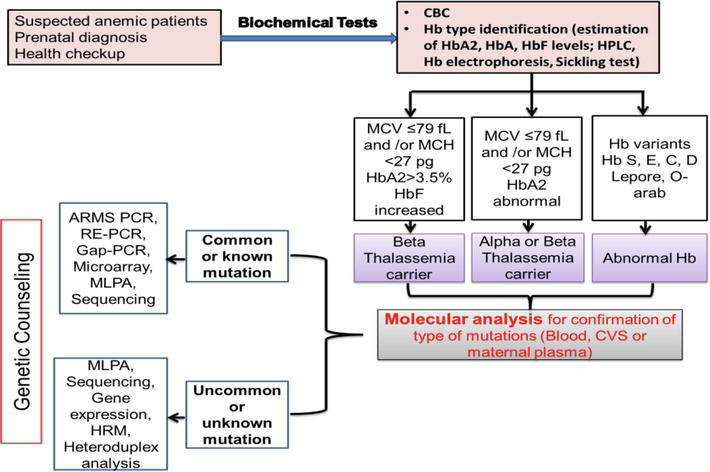
Thalassemia is a group of blood disorders. It affects the two proteins hemoglobin, which carries oxygen. If you have thalassemia, you will have symptoms that range from mild to severe. There are treatments available to treat thalassemia and prevent it from affecting your baby. In many cases, you can be tested for it before you become pregnant or even during pregnancy. If you are diagnosed, your doctor will prescribe treatments that will ensure the health of both you and your baby.
If you suspect you have thalassemia, your physician will order a series of blood tests. These tests include a CBC and hemoglobin electrophoresis. Your doctor may also run genetic testing to determine whether you carry the thalassemia gene. A chorionic villus sample will test a small piece of the placenta (an organ just above your stomach). Another blood test called amniocentesis will test the fluid that surrounds your unborn baby.
If a blood disease has been detected, the doctor will conduct a series of tests. Blood tests will help the doctor determine the severity of the condition. A complete blood count will give you a general idea of your hemoglobin level in your blood. Hemoglobin electrophoresis will show if you have the thalassemia gene or not. A spleen biopsy will check the condition of the placenta and the fluid surrounding the unborn baby.
One of the most common treatments for thalassemia is a bone marrow transplant. This procedure replaces damaged bone marrow cells with new ones. This treatment is effective in severe cases and requires the use of identical twins. In most cases, a bone marrow transplant will be successful. However, in severe cases, this procedure is only available for patients with severe thalassemia.
Other symptoms of thalassemia include an enlarged spleen. This can cause infections and the disease can lead to osteoporosis. You should seek medical help at Benakat if you are diagnosed with thalassemia. In addition to the spleen, a patient with thalassemia will have an enlarged spleen. During this procedure, the spleen is enlarged. This condition can also lead to the development of osteoporosis.
In addition to blood tests, patients with thalassemia also undergo genetic testing. This will help determine if the patient has the thalassemia gene or not. People with this disease have an increased risk of developing heart problems. However, the good news is that the treatment can be successfully administered. If a child has thalassemia caused by a defective gene, they may be treated.
Symptoms of thalassemia can vary from a mild anemia to severe anemia. In the most severe cases, a person will need regular blood transfusions to maintain his or her life. In severe cases, the symptoms can be life-threatening and require the treatment of a physician. They will likely need to undergo genetic testing to find the cause of thalassemia. In some cases, a person will not be able to undergo genetic testing.
If the person has thalassemia caused by a mutation in one of the four genes, the condition will affect their children’s blood. This can affect their heart and the endocrine system, which includes the thyroid gland and the adrenal glands. It is also important to note that thalassemia causes enlarged spleen. This symptom can result in a severe infection or osteoporosis.
A person with thalassemia will undergo various blood tests to determine its severity. A CBC test will help determine the type of thalassemia. A hemoglobin electrophoresis test will help your doctor determine the type of thalassemia you have. A patient with this disease will have an elevated risk of a variety of serious complications. In addition to the risk of bone marrow disease, thalassemia can affect the lungs, kidneys, intestines, and reproductive organs.
While thalassemia can cause an enlarged spleen, it is not a life-threatening condition. Most people with thalassemia will have a normal spleen. If the spleen is enlarged, it will cause anemia. A large spleen can also affect the heart and liver. It can lead to many other complications as well. A person with this disorder will also need to undergo a spleen transplant or take supplements to control blood sugar levels.
